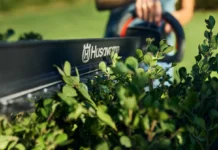The SAM framework and the National Institute for Agronomic Research (INRA) organized a workshop to introduce and adapt the Sustainable Agriculture Matrix (SAM) to the case of olive trees in Morocco.
This workshop aimed to identify key sustainability indicators that are relevant to olive-based food systems in Morocco. It also seeks to suggest the indicators that are missing from the current Moroccan framework.
The SAM is a framework recently developed by the University of Maryland’s Environmental Science Center in the United States. It measures the sustainability of agriculture and contributes to accountable and transparent monitoring of the UN’s Sustainable Development Goals (SDGs).
SAM framework
The SAM framework provides 18 measurable indicators based on three sustainability pillars of economic, environmental, and social sustainability, the statement explained. The matrix is meant to act as a platform for engaging agricultural stakeholders in dialogue and forging beneficial improvements toward sustainability while avoiding negative outcomes.
The workshop was attended by several representatives of public and private sector actors in Morocco, including Morocco’s phosphate and fertilizer giant OCP, the National Office for Agricultural Council (ONCA), and the National Office for Food Safety (ONSSA).
Also present were the Provincial Directorate of Agriculture (DPA), the Marrakech Palm Grove Observatory (OPM), as well as the Regional Office of Agricultural Development of Ouarzazate (ORMVAO).
The workshop’s stakeholder engagement was conducted by a questionnaire to collect information on current experiences in various agricultural sustainability concerns, as well as how institutions or organizations handle sustainable agriculture, the organizers explained.








